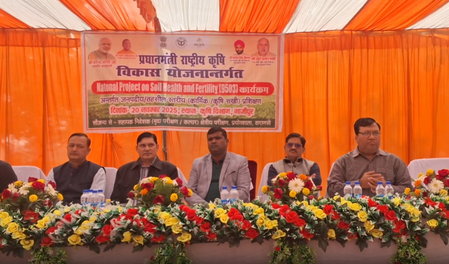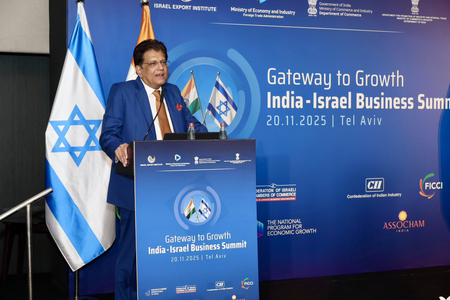
Lucknow, Nov 20 (IANS) If the health of soil is assessed and tested ahead of sowing of crops, it gives insights into the essential elements required for a good harvest and also on how the farmers can compensate for the losses by equipping the soil with nutrients at the right time.
Taking preventive steps in advance makes farming profitable and more rewarding.
A special camp was organised by the Agriculture Department in Uttar Pradesh’s Ghazipur in this regard, to make the farmers aware of the soil testing of the fields under the PM Rashtriya Krishi Vikas Yojana (PM-RKVY).
Farmers were informed about the pros and cons of soil testing in their fields and also about the need for roping in agricultural scientists for timely assistance.
Rajeev Rai, the Assistant Director of Soil Testing, hailing from Varanasi, who attended the program, explained that the government has assigned a target to test the soil before sowing Kharif and Rabi crops.
“Soil samples from approximately 22,000 fields were collected before Kharif sowing, and after testing, cards were distributed to farmers. Now, the department has assigned a target of 9,600 soil tests for Rabi cultivation, for which 20 Gram Panchayats have been selected per block,” he said.
“Based on this, soil samples from 100 plots will be collected and tested,” he added.
He explained that the purpose behind this initiative is to enable farmers to understand the health of their soil and increase productivity.
Usually, farmers tend to excessive usage of chemical fertilisers, which in turn leads to higher expenditures. However, after conducting soil testing, they get to know the right usage of fertilisers, nitrogen, phosphorus, potash and others.
The PM-RKVY scheme, along with Krishonnati Yojana (KV), promotes sustainable agriculture, besides addressing food security & agricultural self-sufficiency issues.
Under the scheme, the state governments have been given flexibility to reallocate funds from one component to another, based on their specific requirements.
–IANS
mr/dan




